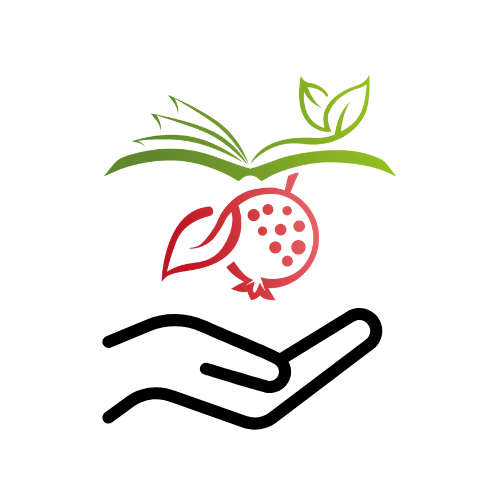What is Stress: Causes of Stress, Symptoms, and Relief

Don’t be anxious. Some days, that sounds impossible. Yet this is what Jesus tells us in Matthew 6:25. Peace is possible! Do you want peace? Keep reading as we tackle the causes of stress, its symptoms and relief.
I love teaching about God’s Word and what He has to say about health, but that doesn’t stop at food and physical health.
Mental and emotional health are:
- Something God wants for us
- Possible with the resources the Lord has provided
- Inextricably intertwined with our physical and spiritual health
- Impacted by many things
Stress is an attack on our mental, emotional, and physical health.
And it’s been the fastest-growing disease in the Western world for years. It’s all around us.
Our daily lives offer us overwhelming challenges and opportunities. These situations show up in various ways, but how we respond to them determines if the stress created by these challenges is good stress or bad stress and the impact it has on our health.
What is Stress?

Stress can be defined as the gap between the demands placed on us and the strength we have to meet those demands. Not meaning we fall apart when difficult, challenging, or traumatic things happen because we aren’t strong enough, but instead that we are all only so-equipped to cope with life’s upheavals.
Our overall health is impacted by how we handle difficult or challenging situations, yet experiencing stress isn’t a character flaw.
Some people believe Christians shouldn’t have problems or stress. That if someone’s encountering these problems, they aren’t spiritually mature, spending enough time with God, or praying or working hard enough.
These are lies! Don’t feed into or believe them.
Stress is an unavoidable part of life.
It’s also an opportunity to experience God’s sufficiency.
It’s in the most difficult times we recognize our greatest need: the Lord.
And they are opportunities to draw closer to God, learn to rely more on God, and be healed and sustained by God.
None of us would choose stress. But we can choose what to do with it.
Causes of Stress

What do you think of when the topic of causes of stress comes up? I bet your mind is racing with a dozen or more items.
Again, stressors are a part of life. We live in a fallen, sinful world. Corruption, selfishness, greed, pride, and a host of other sins cause stress. So do illnesses, accidents, and natural disasters.
As long as we’re on this side of heaven, stress will be a part of life. To cope with it well, we don’t want to avoid the causes of stress, but instead acknowledge them, face them, and deal with them head-on.
Good Stress vs Bad Stress
Different types of stress exist. Not all stress, at least in the short term, causes harm.
A positive (good) stress is a challenge or opportunity that typically requires us to stretch ourselves. Things like:
- A new baby in the family
- A promotion at work
- Moving
- Trip/vacation
- Wedding
While these events increased the load on us emotionally, mentally, physically, and spiritually, they’re celebrations in life. They deliver a positive payoff and bring joy.
There aren’t usually as many negative effects of stress in these types of circumstances. We’re naturally able to better manage stress when there’s an expected payoff at the end.
A negative (bad) stress is overload and the stretch may cancel any pleasure (if there is even any). Changes like:
- Losing a job
- A bad physical diagnosis
- Broken relationship with a family member
- Death of a loved one
- Traumatic event
- Problems at work
- COVID
These situations and events wreak havoc on our lives and, at least on the onset, don’t appear to have a positive payoff. They create a need for our brains to readjust, as well as many aspects of our lives.
The cost is great. Emotional stress has a harmful impact. Emotions such as:
- Fear
- Anxiety
- Frustration
- Anger
- Depression
Often we’re unaware of how much these feelings affect both our short and long-term health. However, they impact not only our physical health, but also our emotional, spiritual, and mental health.
In addition, negative stressors tend to cause more negative physical symptoms. These symptoms may manifest in many different ways, but impact our nervous system, blood pressure, immune system, and can aggravate existing medical conditions.
We’ll get back to more about problems stress can cause and health solutions soon, but first let’s look at areas of stress we may not always consider or be aware of.
Other Causes of Stress

Are the things listed above the only types of stress in life?
Of course not.
Those things tend to fall under the category of environmental stressors. However, there are many more things that weigh down our bodies and minds.
We can break down the main causes of stress into four categories. We’ve introduced the first one because it’s the most recognized. They’re also more external and visible stressors.
But, there are so many more causes of stress. Therefore we’ll add to the first category and to the overall list of things people may experience which cause stress levels to increase.
1 – Environmental: life situations/events, loud/excessive noise, extreme hot or cold environments, toxins
2 – Diet: malnutrition, illness, weight problems, drugs, processed foods, medicines
3 – Exercise: lack of exercise, excessive exercise
4 – Attitude: anger, resentment, guilt, anxiety, unforgiveness, fear, self-criticism, low self-image, perfectionism, worry, feeling overwhelmed
Can you relate to any of those items? I sure can! And I could even more before I became dedicated to living a healthy lifestyle.
As you may have noticed, we have no control over many items that infuse stress into our lives.
However, we do have control over how we prepare for and manage stress.
There are thousands of small decisions we can make every day to help ourselves cope with and combat stress.
Regardless of the causes of stress, effects of stress, or type of stress, you have the ability to take action and help yourself manage stress and feel better.
The first step to managing and working through stress is recognizing the effects of stressful events and situations have on us.
Sometimes we’re stressed out and don’t even recognize the signs. So, what are the signs of stress?
Symptoms of Stress

How does the body respond to stress?
Stress:
- creates upset stomachs
- causes splitting headaches
- leads to burn-out
- generates arguments
- dulls our memories
- cripples our thinking
- weakens our bodies
- upsets our plans
- stirs up our emotions
- reduces our efficiency.
However, stress can also motivate us to work (procrastinators relate?), encourage us in difficult times, spur us to action during crises, help us mature, and can sometimes make life exciting.
Many of these are tangible and we can say, “Yes, I’ve experienced that.”
Other impacts of stress, especially when we have too much stress or chronic stress, however, go on in our bodies unnoticed.
This list includes physical symptoms, but also symptoms that cause other health problems. These can damage our nervous system, cardiovascular system, immune system, and overall health.
These include:
- Increased production of adrenaline and stress hormones, which cause depletion of vitamins B and C.
- Increased blood glucose levels. When vitamin B stores are depleted, the body isn’t able to convert sugar to energy. Over time, this overworks the pancreas and can lead to type 2 diabetes.
- Increased heart rate and breathing rate, leading to depleted vitamin E.
- Muscle tension, which depletes calcium and magnesium, minerals important in handling of stress.
- Depression of the digestive. Food is only partially digested, enzymes slow down, food putrefies, and the colon becomes sluggish.
- Disturbs reproductive systems. Stress can contribute to increased problems with impotence, PMS, endometriosis, etc.
A Stress Story
A friend of mine often shares a story that shows the tangible effect of stress on the body that most of us can’t see.
She and her husband had put in an offer to purchase a lot and the sale looked like it was going to fall through. She stressed about it, rehearsing the problem in her mind over and over, worried, and even though she prayed, didn’t turn the situation over to God.
Then, one day she decided to let go. She’d trust God with the outcome no matter what.
The next day, her blood sugar levels dropped. You see, she’s a type 1 diabetic and tests her sugar multiple times a day. For a couple of weeks, she couldn’t seem to get it into a normal range. The day after she chose to rely on God, her blood sugars returned to normal.
Most of us don’t have something so visible that tells us how our bodies are reacting to stress.
But whether we’re experiencing physical symptoms or not, our bodies are always impacted by stress.
Dangers of Long-Term Stress

We all experience stress, but the important thing is to not remain in a state of stress. When we’re constantly under stress with no relief or break, serious health problems can occur or be exacerbated.
In our country, we are not dying of infectious diseases equivalent to the past. Instead, we’re dying of lifestyle and degenerative diseases such as heart disease, cancer, and diabetes.
Even when infectious disease runs rampant, often it’s these underlying conditions that make our immune systems less able to defeat them.
Stress can bring about any one of the above diseases in spite of eating the right foods, exercising, and supplementing correctly.
Stress creates an excellent breeding ground for illness.
That’s true for a diminishing of physical, emotional, and mental wellness.
Are you feeling stressed during these unprecedented times? Are you stressed because there’s no end in sight?
Our response to stress determines its effect on our bodies, so we must learn how to deal with stress appropriately.
Stress Relief

Overcoming stress is not a one-size-fits-all formula, but there are principles – choices and actions – that are proven to help.
Developing an “I can Handle It” Attitude
This doesn’t mean that you can do everything in your own strength, but that leaning into the Lord and choosing to think positively will help reduce stress.
Positive self-talk and meditating on scripture will take us a long way toward successfully coping and being able to handle difficulties in life.
Look for the positive side of your circumstances.
Count your blessings.
Ask God for strength and lean into Him to help you accomplish what’s laid before you today.
Schedule reminders on your phone with a verse or other encouragement to go off at random times. We never know when we might need an extra boost!
One of the best things you can say and remind yourself of is GOD LOVES YOU!
Commit to a Healthy Diet

The same foods recommended for physical health and wellness also prepare us for stressful situations before they arise.
When stress comes along and our eating is atrocious, we need answers quickly. Those answers are to eat a diet that includes:
- High-quality protein
- Whole grains
- Raw fruits
- Vegetables (raw when possible)
- Water
- (a small amount of dark chocolate on occasion)
We want to cut out processed and sugary foods as much as possible. These may help us to feel better for a few minutes, but our bodies will pay with lethargy and mental fog in the long run.
Healthy Lifestyle Choices

In addition to making better food choices, there are dozens of little things we can do every day to help our minds, hearts, and bodies cope better with stress.
These include:
- Getting regular exercise
- Sleeping well and long enough to rejuvenate your mind and body
- Focusing on what is truly important in life (consider making a list of things that call out for your time and attention and eliminating what isn’t necessary)
- Join our BNA Coaching to learn how to create thoughts that will take you out of stress.
- Schedule your days and weeks to help keep yourself organized and aware of short and long term goals and responsibilities
- Live by a budget (that’s prayed over and includes tithing)
- Resolve conflicts (as much as it depends on you)
- Create healthy boundaries with toxic or stress-producing people
- Laugh
- Play praise and worship music
- Express love to those in your life in tangible ways
- Be generous
- Spend copious amounts of time with God
Consider Supplements
Symptoms of stress can often persist in highly uneasy or anxious times. Even when making consistent good choices. That’s part of living in a fallen world.
If this is the case, good, quality supplements may be necessary to allow the body to be prepared and recover quickly from stress.
I talk more about my top-recommended herbs for stress and anxiety in this video:
[responsive_video type=’youtube’ hide_related=’1′ hide_logo=’0′ hide_controls=’0′ hide_title=’1′ hide_fullscreen=’0′ autoplay=’0′]https://www.youtube.com/watch?v=kWvpi7jKpvk&t=221s[/responsive_video]
Not all supplements are the same. Research what’s out there! Saving money and getting poor quality supplements offers no benefit.
Suggested supplements for stress are:
- Ashwagandha
- B-Complex
- Multi-Vitamin
- Protein (Like a high-quality protein powder)
- Vitamin E
- Vitamin C
- Calcium/Magnesium
- Digestive enzymes
- Zinc
- Herbs
Rest & Relaxation

The final prescription for stress is to allow time for adequate rest and relaxation.
Take a small amount of time each day and a larger amount of time each week to break away from the demands of life.
Dr. Richard Couey recommends a progressive relaxation program that is intentional. It doesn’t take a lot of time, but is very powerful.
First, set aside a time to escape to a room by yourself. Put the lighting on low and either keep things quiet or play soft music.
Lie on your back, with your arms relaxed and eyes closed. Take slow, deep breaths, allowing your mind and body to relax.
Next, tighten the muscles in your legs and arms for five seconds, then relax them. Repeat this in other muscle groups.
Finally, rest your entire body for five minutes, then rise and stretch.
Take note of how much better you feel! You’ll be amazed how these few intentional moments can relax and refresh you.
Stress Reduction
It’s clear that stress affects the body, soul, and spirit. We’ve looked at the warning signs and ways to better handle stress. I hope this has been helpful to you and would love to hear if it was!
Before I leave you, one more reminder.
God has a plan for your life. Any deterrent from that plan is a distraction instigated by Satan.
As we lean into God and acknowledge Him in everything we do, He will direct our ways and give us everything we need to live lives of abundant joy:
Including our most difficult days.





